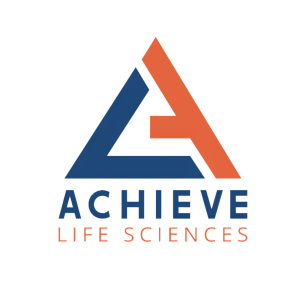Achieve Life Sciences Announces FDA Grants Breakthrough Therapy Designation to Cytisinicline for the Treatment of E-Cigarette or Vaping Nicotine Dependence
Rhea-AI Summary
Achieve Life Sciences (Nasdaq: ACHV) has received FDA Breakthrough Therapy Designation for cytisinicline, a potential first-in-class treatment for nicotine e-cigarette and vaping cessation. This designation is based on the Phase 2 ORCA-V1 trial results, which showed that cytisinicline more than doubled the odds of quitting e-cigarettes compared to placebo. The trial, published in JAMA Internal Medicine, involved 160 adults and demonstrated that participants treated with cytisinicline were 2.6 times more likely to quit vaping. The treatment was well-tolerated with no serious adverse events reported. Achieve plans to hold an End-of-Phase 2 meeting with the FDA before year-end to expedite development and review of cytisinicline for this serious condition affecting over 13 million people in the US.
Positive
- FDA granted Breakthrough Therapy Designation for cytisinicline
- Potential to be first-in-class treatment for nicotine vaping cessation
- Phase 2 ORCA-V1 trial showed 2.6 times higher likelihood of quitting vaping compared to placebo
- Treatment was well-tolerated with no serious adverse events reported
- Expedited development and review process due to Breakthrough Therapy Designation
Negative
- None.
News Market Reaction
On the day this news was published, ACHV gained 1.01%, reflecting a mild positive market reaction.
Data tracked by StockTitan Argus on the day of publication.
Designation is based on results from the Phase 2 ORCA-V1 trial that showed treatment with cytisinicline more than doubled the odds of quitting e-cigarettes compared with placebo
SEATTLE and VANCOUVER, British Columbia, July 31, 2024 (GLOBE NEWSWIRE) -- Achieve Life Sciences, Inc. (Nasdaq: ACHV), a late-stage pharmaceutical company committed to the global development and commercialization of cytisinicline for smoking cessation and nicotine dependence, announced today that the U.S. Food and Drug Administration (FDA) has granted Breakthrough Therapy Designation for cytisinicline for nicotine e-cigarette, or vaping, cessation.
“Since there are no FDA-approved medications specifically indicated for nicotine vaping cessation, cytisinicline has the potential to be a first-in-class treatment to address the unique challenges of the over 13 million people in the United States who vape nicotine and are struggling to overcome their addiction,” said Dr. Cindy Jacobs, Achieve’s President and Chief Medical Officer. “Our hope is that with this Breakthrough Therapy Designation and the benefit of increased communication and guidance from the FDA, we can more quickly and efficiently advance cytisinicline as the first approved pharmacotherapy for vaping cessation, not only for adults but potentially in the future for adolescents.”
Breakthrough Therapy Designation is designed to expedite the development and review of drugs that are intended to treat serious conditions and when preliminary clinical evidence indicates that the drug may demonstrate substantial improvement over available therapies. It provides product sponsors the ability to receive an FDA cross-disciplinary project management team for interactive communications with senior managers and expert reviewers from the FDA. Achieve plans to hold an End-of-Phase 2 meeting with the FDA’s multidisciplinary team under this Breakthrough Therapy Designation before the end of the year.
The FDA considers tobacco dependence to be a serious or life-threatening condition. Long-term e-cigarette use is also becoming recognized as a serious condition based on the potential for serious respiratory, cardiovascular, or other yet unknown risk outcomes. There is also concern regarding adolescent and young adult use given the potential risks on brain development and the strong risk of nicotine addiction as noted in ‘The Report of the Surgeon General on E-Cigarette Use Among Youth and Young Adults’.
Achieve’s Phase 2 ORCA-V1 trial, recently published in the Journal of the American Medical Association (JAMA) Internal Medicine, evaluated the efficacy and safety of 3 mg cytisinicline dosed three times daily for 12 weeks compared to placebo in 160 adults who used nicotine e-cigarettes, did not smoke, and wanted to quit vaping. Findings indicated that participants treated with cytisinicline were 2.6 times more likely to have quit vaping compared to those who received placebo. A consistent trend in favor of cytisinicline was also found across the other secondary endpoints, evaluating abstinence during and beyond end of treatment. As seen in Phase 3 trials of cytisinicline for smoking cessation, cytisinicline treatment was well tolerated with no serious adverse events reported and had excellent compliance rates.
The Phase 2 ORCA-V1 clinical study discussed in this press release was supported in part by the National Institute on Drug Abuse of the National Institutes of Health (NIH) under Award Number 4R44DA054784-02. The content of this press release is the sole responsibility of the authors and does not necessarily represent the official views of the NIH.
About ORCA-V1
The Phase 2 ORCA-V1 trial evaluated 160 adults who used e-cigarettes on a daily basis at five clinical trial locations in the United States. ORCA-V1 participants were randomized to receive 3mg cytisinicline three times daily or placebo for 12 weeks in combination with standard cessation behavioral support. The dose and administration of cytisinicline in the ORCA-V1 study is identical to that used in the Phase 3 registrational trials for smoking cessation. ORCA-V1 was supported in part by the National Institute on Drug Abuse (NIDA) of the NIH through grant funding which was awarded in two phases totaling
About Achieve and Cytisinicline
Achieve’s focus is to address the global smoking health and nicotine addiction epidemic through the development and commercialization of cytisinicline. There are approximately 29 million adults in the United States alone who smoke combustible cigarettes.1 Tobacco use is currently the leading cause of preventable death that is responsible for more than eight million deaths worldwide and nearly half a million deaths in the United States annually.2,3 More than
In addition, there are over 11 million adults in the United States who use e-cigarettes, also known as vaping.4 In 2023, approximately 2.1 million middle and high school students in the United States reported using e-cigarettes.5 Currently, there are no FDA-approved treatments indicated specifically as an aid to nicotine e-cigarette cessation.
Cytisinicline is a plant-based alkaloid with a high binding affinity to the nicotinic acetylcholine receptor. It is believed to aid in treating nicotine addiction for smoking and e-cigarette cessation by interacting with nicotine receptors in the brain, reducing the severity of withdrawal symptoms, and reducing the reward and satisfaction associated with nicotine products. Cytisinicline is an investigational product candidate being developed for the treatment of nicotine addiction and has not been approved by the Food and Drug Administration for any indication in the United States. For more information on cytisinicline and Achieve visit www.achievelifesciences.com.
Forward Looking Statements
This press release contains forward-looking statements within the meaning of the “safe harbor” provisions of the Private Securities Litigation Reform Act of 1995, including, but not limited to, statements regarding the timing and nature of cytisinicline clinical development and regulatory review and approval, data results and commercialization activities, the potential market size for cytisinicline, the potential benefits, efficacy, safety and tolerability of cytisinicline, the ability to discover and develop new uses for cytisinicline, including but not limited to as an e-cigarette cessation product, and the development and effectiveness of new treatments. All statements other than statements of historical fact are statements that could be deemed forward-looking statements. Achieve may not actually achieve its plans or product development goals in a timely manner, if at all, or otherwise carry out its intentions or meet its expectations or projections disclosed in these forward-looking statements. These statements are based on management’s current expectations and beliefs and are subject to a number of risks, uncertainties and assumptions that could cause actual results to differ materially from those described in the forward-looking statements, including, among others, the risk that cytisinicline may not demonstrate the hypothesized or expected benefits; the risk that Achieve may not be able to obtain additional financing to fund the development of cytisinicline; the risk that cytisinicline will not receive regulatory approval or be successfully commercialized; the risk that new developments in the smoking cessation landscape require changes in business strategy or clinical development plans; the risk that Achieve’s intellectual property may not be adequately protected; general business and economic conditions; risks related to the impact on our business of macroeconomic and geopolitical conditions, including inflation, rising interest rates, increased volatility in the debt and equity markets, actual or perceived instability in the global banking system, global health crises and pandemics and geopolitical conflict and the other factors described in the risk factors set forth in Achieve’s filings with the Securities and Exchange Commission from time to time, including Achieve’s Annual Reports on Form 10-K and Quarterly Reports on Form 10-Q. Achieve undertakes no obligation to update the forward-looking statements contained herein or to reflect events or circumstances occurring after the date hereof, other than as may be required by applicable.
Investor Relations Contact
Nicole Jones
achv@cg.capital
(404) 736-3838
Media Contact
Glenn Silver
Glenn.Silver@Finnpartners.com
(646) 871-8485
References
1VanFrank B, Malarcher A, Cornelius ME, Schecter A, Jamal A, Tynan M. Adult Smoking Cessation — United States, 2022. MMWR Morb Mortal Wkly Rep 2024;73:633–641.
2World Health Organization. WHO Report on the Global Tobacco Epidemic, 2019. Geneva: World Health Organization, 2017.
3U.S. Department of Health and Human Services. The Health Consequences of Smoking – 50 Years of Progress. A Report of the Surgeon General, 2014.
4Cornelius ME, Loretan CG, Jamal A, et al. Tobacco Product Use Among Adults – United States, 2021. MMWR Morb Mortal Wkly Rep 2023;72:475–483.
5Birdsey J, Cornelius M, Jamal A, et al. Tobacco Product Use Among U.S. Middle and High School Students — National Youth Tobacco Survey, 2023. MMWR Morb Mortal Wkly Rep 2023;72:1173–1182.








